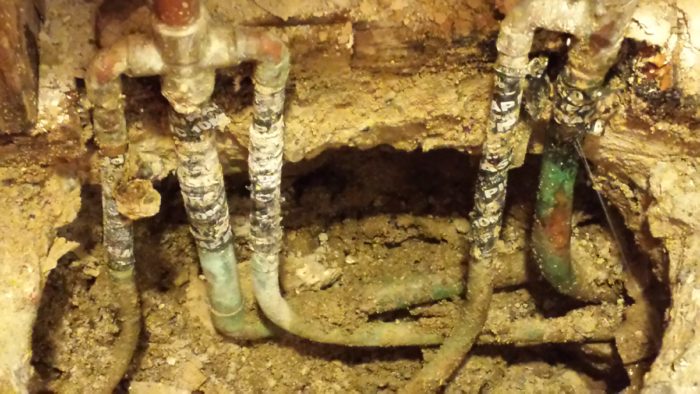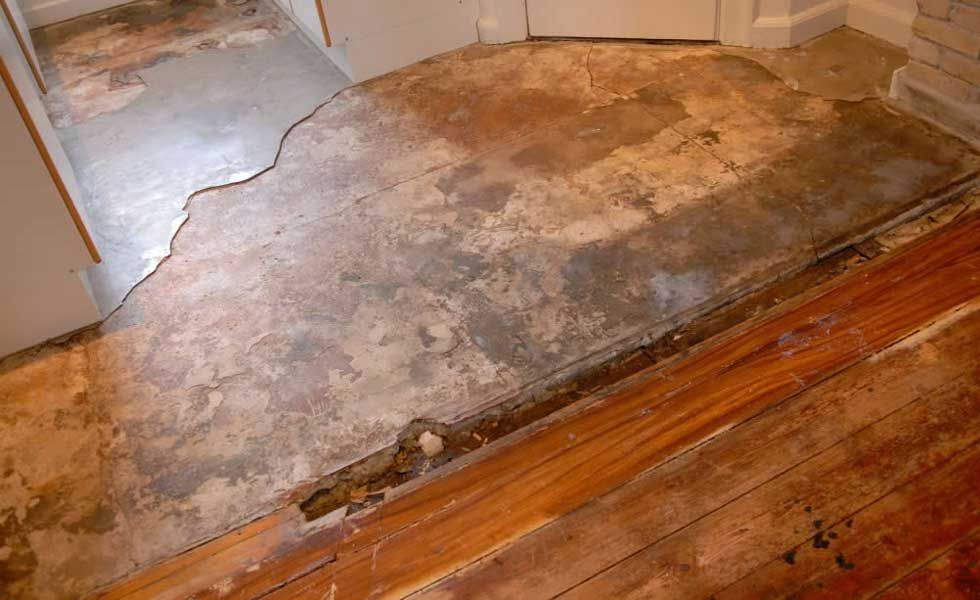We kept the softener in its original location under where the sink had been by the rising main and the builder s plumber ran three copper pipes for hot hard cold and soft cold pipes to the new sink location about two metres away.
Laying copper pipe in concrete floor.
I ve heard that copper pipes that penetrate concrete floors and copper shower pans in contact with concrete or cement board can corrode.
This can be done by insulating the tube where it passes through the wall or by wrapping the tube with an approved tape to avoid.
Of course by the time we noticed the whole floor was saturated and it took weeks to dry.
I ve also been told to wrap protruding copper pipes with tar paper before embedding them in concrete.
At the moment it is just connected to one gas pipe which runs to the boiler but i want to run a pipe to the back of the cooker in the kitchen so that in the future i can have a gas oven hob.
It is also acceptable to run a copper water tube through a concrete floor or wall provided that allowance is made for the lateral thermal expansion and movement of the tube and.
Unfortunately just because copper is resistant to corrosion it doesn t mean copper can t corrode especially if it s installed underground or inside concrete slabs.
We had a kitchen extension built in 1993 with copper pipes buried in the concrete floor.
After about 10 years it started leaking.
Our stupid builder buried a copper pipe in concrete under the kitchen floor when we built an extension in 1993.
If the water flowing into the building through the copper pipes is acidic or.
Can t afford to do both jobs at the same time the floor is concrete and i want to run it in the floor approx 2 meters as i am going to retile the floor.
The copper tube must be completely embedded in the concrete and adequate provision for thermal expansion should be provided where the tube enters exits the concrete.
The number one cause of copper pipe corrosion is the water itself.
















